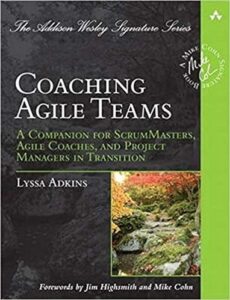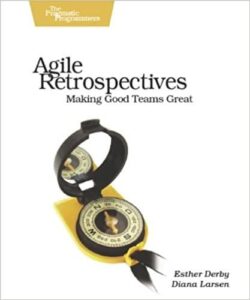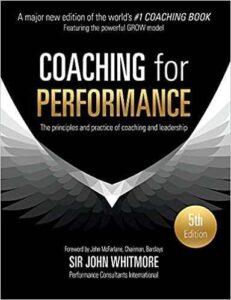Top Agile Coaching Books
1. Coaching Agile Teams
A Companion for Scrum Masters, Agile Coaches, and Project Managers in Transition
As an agile coach, you can help project teams become outstanding at agile, creating products that make them proud and helping organizations reap the powerful benefits of teams that deliver both innovation and excellence.

More and more frequently, Scrum Masters and project managers are being asked to coach agile teams. But it’s a challenging role. It requires new skills – as well as a subtle understanding of when to step in and when to step back. Migrating from “command and control” to agile coaching requires a whole new mindset.
In Coaching Agile Teams, Lyssa Adkins gives agile coaches the insights they need to adopt this new mindset and to guide teams to extraordinary performance in a re-energized work environment.
You’ll gain a deep view into the role of the agile coach, discover what works and what doesn’t, and learn how to adapt powerful skills from many allied disciplines, including the fields of professional coaching and mentoring.
works and what doesn’t, and learn how to adapt powerful skills from many allied disciplines, including the fields of professional coaching and mentoring.
Coverage includes:
-
- Understanding what it takes to be a great Agile Coach
- Mastering all of the agile coach’s roles: teacher, mentor, problem-solver, conflict navigator, and performance coach
- Creating an environment where self-organized, high-performance teams can emerge
- Coaching teams past cooperation and into full collaboration
- Evolving your leadership style as your team grows and changes
- Staying actively engaged without dominating your team and stunting its growth
- Recognizing failure, recovery, and success modes in your coaching
- Getting the most out of your own personal agile coaching journey.
2. Agile Coaching
Discover how to coach your team to become more Agile. Agile Coaching de-mystifies agile practices–it’s a practical guide to creating strong agile teams. Packed with useful tips from practicing agile coaches Rachel Davies and Liz Sedley, this book gives you coaching tools that you can apply whether you are a project manager, a technical lead, or working in a software team.
To lead change, you need to expand your toolkit, and this book gives you the tools you need to make the transition from agile practitioner to agile coach.
Agile Coaching is all about working with people to create great agile teams. You’ll learn how to build a team that produces great software and has fun doing it. In the process, you’ll grow a team that’s self-sufficient and skillful.

This book provides you with deeper knowledge of how agile practices work and how to inspire your team to improve. Discover how to coach your team through the agile lifecycle, from planning to writing software. Learn the secrets of running effective agile meetings and how to get your team following a consistent approach to creating software. You’ll find chapters dedicated to introducing Test-Driven Development, designing Retrospectives, and making progress visible.
Find out what works and what to avoid when introducing agile practices to your team. Throughout the book the authors share their personal coaching stories from experience with real teams, giving you insights into what works and what to avoid. Each chapter also covers hurdles that you and your team may face and what to do to clear them.
3. Agile Retrospectives:
Project retrospectives help teams examine what went right and what went wrong on a project. But traditionally, retrospectives (also known as “post-mortems”) are only helpful at the end of the project–too late to help. You need agile retrospectives that are iterative and incremental.
You need to accurately find and fix problems to help the team today. Now, Derby and Larsen show you the tools, tricks, and tips you need to fix the problems you face on a software development project on an ongoing basis. You’ll see how to architect retrospectives in general, how to design them specifically for your team and organization.
It’s also how to run them effectively, how to make the needed changes, and how to scale these techniques up. You’ll learn how to deal with problems, and implement solutions effectively throughout the project–not just at the end. With regular tune-ups, your team will hum like a precise, world-class orchestra.
4. Coaching for Performance Fifth Edition:
The Principles and Practice of Coaching and Leadership
Coaching for Performance is the definitive book for coaches, leaders, talent managers and professionals around the world.
An international bestseller, featuring the influential GROW model, this book is the founding text of the coaching profession. It explains why enabling people to bring the best out of themselves is the key to driving productivity, growth, and engagement. A meaningful coaching culture has the potential to transform the relationship between organizations and employees and to put both on the path to long -term success.
-term success.
Written by Sir John Whitmore, the pioneer of coaching, and Performance Consultants, the global market leaders in performance coaching, this extensively revised and extended edition will revolutionize the traditional approach to organizational culture. Brand-new practical exercises, corporate examples, coaching dialogues, and a glossary strengthens the learning process, whilst a critical new chapter demonstrates how to measure the benefits of coaching as a return on investment, ensuring this landmark new edition will remain at the forefront of professional coaching and leadership development.
